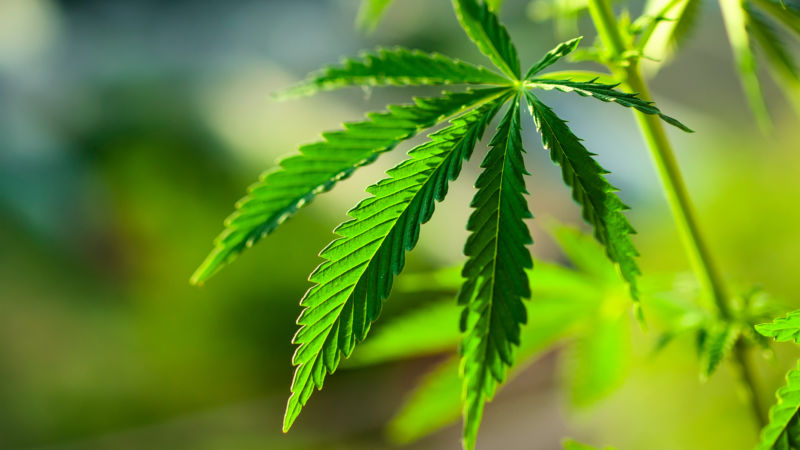While the sale of cannabis is still considered illegal under federal law in most cases, voters and state legislatures are increasingly embracing the cannabis industry at the state level. Recreational use is now permitted under the laws of 11 states and the District of Columbia, and a further 36 states allow at least some type of medicinal sale or use. With constituents supporting cannabis legalization, state legislatures are looking to this emerging industry to address budget shortfalls.
Voters Spark Legalization Wave
Voters in Oklahoma, Michigan, Missouri, North Dakota, and Utah considered cannabis-related ballot measures last year. In a special election in June 2018, voters in Oklahoma approved State Question 788, authorizing medicinal use and a 7% excise tax on cannabis sales. This trend continued into the midterm election in November 2018.
In Michigan, Proposal 18-1 was approved by a vote of 56-44, permitting recreational use and possession of marijuana for persons 21 years of age or older and enacting a tax on marijuana sales. The state has until December 9 of this year to set up the legal framework for the recreational market.
Missouri voters considered three different medicinal marijuana ballot initiatives in 2018, each with a different proposed tax rate. Of those three, Amendment 2 was approved 66-34, initiating a constitutional amendment to allow medicinal use of marijuana, tax marijuana sales at 4%, and directing the resulting revenues to veterans’ healthcare services.
Utah’s Proposition 2 was approved by voters 53-47 in support of a medicinal cannabis program in the state. However, in a special session in December 2018, the legislature passed a narrower version of the program, in place of Proposition 2’s initiated state statute. A lawsuit challenging this move is pending in federal court (Epilepsy Association of Utah, et al. v. Herbert, et al., D. Utah, Docket No: 2:19-CV-00360).
Voters in North Dakota approved medicinal use of cannabis in 2016 and, this year, the state’s first medicinal dispensary opened. North Dakotans were less keen on recreational use, however. Measure 3 would have allowed recreational adult use of marijuana and automatic expungement of certain prior marijuana convictions but failed by a vote of 59-41 on the November 2018 ballot.
While Illinois did not have a cannabis ballot measure in 2018, the state’s legislature voted this year to legalize recreational-use sales as of January 1, 2020. The Illinois Cannabis Regulation and Tax Act imposes a 7% excise tax on cannabis and a sales tax on retail sales at a rate that increases the higher the THC potency of the product sold (in addition to the current state and local sales tax).
Cannabis Taxation Yields Uncertain Revenues
Many states are hoping a legal cannabis market can provide a source of much-needed state revenue. This summer, roughly five years after recreational legalization, Colorado’s cumulative revenue from cannabis taxes and fees surpassed $1 billion. In fiscal year 2019 alone, Nevada collected over $100 million in cannabis taxes and fees. But, a brief published last month by The Pew Charitable Trusts cautioned states: “While these new dollars can fill immediate budget needs, they may prove unreliable for ongoing spending demands.”
There is limited data for states to evaluate when making policy decisions on cannabis taxation: what kind of tax is best, who should pay it, how should it be calculated, how to estimate the resulting revenue, and how should any cannabis revenue be spent?
The Institute on Taxation and Economic Policy (ITEP) released a report in January recommending states (a) impose excise taxes, at least in part, on the basis of the weight of the cannabis sold; (b) index the rates to inflation; and (c) phase in cannabis taxes over time. Basing the tax on the sales price rather than weight could, according to the ITEP report, leave the state vulnerable to a revenue shortfall when the price dips. Joseph Bishop-Henchman, formerly of Tax Foundation, disagreed with ITEP, writing: “There is zero evidence state marijuana tax revenues are about to collapse.” Bishop-Henchman provided further that price, unlike weight, “is an effective proxy for potency.”
In the absence of clear data, states are experimenting with different tax schemes. Some states have opted for an excise tax on cultivators, manufacturers, processors, or distributors, while others impose the state’s sales tax on the final retail sale, and still other states impose both excise and sales taxes. In 2019, Louisiana, for example, enacted a bill that imposes a 7% fee on gross sales of medicinal marijuana and provides an exclusion from the state’s sales tax for medicinal marijuana sales. The state also passed a 3% excise tax on the price of industrial-hemp-derived CBD products, in addition to the state sales tax. New Jersey voted to phase out the sales tax on medicinal cannabis through July 2022. And Maine, which legalized recreational use via a 2016 ballot measure, finally took steps in 2019 to establish a dispensary system in the state. The Maine law imposes a weight-based excise tax on marijuana sales by cultivation facilities and an increased sales tax rate (10%) on retail sales.
All Eyes on 2020
At the federal level, there is growing support in Congress and among presidential candidates to authorize state cannabis programs under federal law. The American Bar Association adopted a resolution last month urging Congress to remove marijuana from Schedule I of the Controlled Substances Act. Numerous bills have been introduced in recent years aiming to deschedule cannabis and remove other roadblocks to state legalization of medicinal or recreational cannabis. In June, the House Financial Services Committee favorably reported H.R. 1595, SAFE Banking Act of 2019, which would allow cannabis-related businesses to access traditional banking services; the bill has bipartisan support and more than 200 cosponsors. Most recently, U.S. Senator Kamala Harris (D-CA) and U.S. Representative Jerrold Nadler (D-NY-10), Chairman of the House Judiciary Committee, introduced H.R. 3884, Marijuana Opportunity Reinvestment and Expungement (MORE) Act. The MORE Act would retroactively deschedule marijuana and create a 5% federal excise tax on cannabis products manufactured in or imported into the United States.
In the states, voters continue to pursue ballot measures for the 2020 election. State legislatures are also expected to be active on cannabis next year. Recreational legalization bills in New York and New Jersey failed in 2019, but are expected to resurface in 2020. Four states hold state legislative elections in 2019: Louisiana, Mississippi, New Jersey, and Virginia. While all these elections will impact cannabis policy in these states, Virginia is one to watch closely. Every seat in Virginia’s legislature is up for election this November and Republicans hold only slim majorities in the Virginia House of Delegates (51-49) and Senate (21-19). Virginia Attorney General Mark Harris, a Democrat, came out in favor of recreational marijuana legalization in June.
About the Author Melissa A. Oaks is Current Awareness Lead for Thomson Reuters Checkpoint. Prior to this role, Melissa was a Proposition Manager for ONESOURCE Indirect Tax and Managing Editor of State & Local Tax for Checkpoint Catalyst. Her specialties include complex nexus and apportionment issues and taxation of cannabis. Before joining Thomson Reuters in 2013, Melissa practiced law in New York. Melissa is a graduate of Cornell University and Columbia Law School and earned an LL.M. in Taxation from NYU School of Law. Twitter: @melissaaoaks
For more information on how ONESOURCE and Checkpoint can help you keep up with the changing regulatory environment, visit our ONESOURCE and Checkpoint pages.






